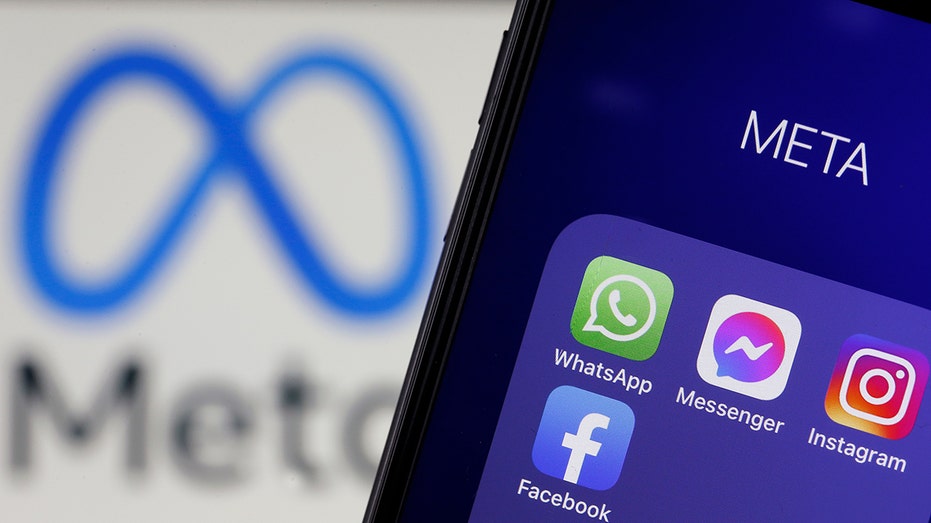Facebook's Meta to pay $115K in DOJ settlement of discriminatory housing ad allegations
Meta will change ad system to address ‘algorithmic discrimination’ in historic DOJ suit
The Department of Justice announced a settlement with Meta Platforms Inc., formerly known as Facebook Inc., Tuesday regarding allegations that the social media giant discriminated against users by targeting advertisements about housing based on their race, sex and other protected characteristics.
The settlement agreement, which still requires court approval, says Meta will pay a civil penalty in the amount of $115,054, the maximum penalty allotted under the Fair Housing Act (FHA).
The proposed agreement resolves a lawsuit filed Tuesday in the U.S. District Court for the Southern District of New York. Specifically, the complaint alleges three key aspects of Meta’s ad targeting and delivery system that violates federal law.
| Ticker | Security | Last | Change | Change % |
|---|---|---|---|---|
| META | META PLATFORMS INC. | 661.46 | -8.75 | -1.31% |
Firstly, Meta allegedly enabled and encouraged advertisers to target their housing ads by relying on race, color, religion, sex, disability, familial status and national origin to decide which Facebook users will be eligible and ineligible to receive housing ads.
FACEBOOK TAKES DOWN SENATE CANDIDATE ERIC GREITENS' ‘RINO HUNTING’ CAMPAIGN VIDEO
According to the complaint, Meta created an ad targeting tool known as "Lookalike Audience" or "Special Ad Audience" that uses a machine-learning algorithm to find Facebook users who share similarities with groups of individuals selected by an advertiser using several options provided by Facebook.

Facebook co-founder, Chairman and CEO Mark Zuckerberg testifies before the House Energy and Commerce Committee in the Rayburn House Office Building on Capitol Hill April 11, 2018, in Washington, DC. (Chip Somodevilla/Getty Images / Getty Images)
Facebook allegedly allowed its algorithm to consider FHA-protected characteristics — including race, religion and sex — in finding Facebook users who "look like" the advertiser’s source audience and thus are eligible to receive housing ads.
Lastly, Meta’s ad delivery system uses machine-learning algorithms that rely in part on FHA-protected characteristics — such as race, national origin and sex — to help determine which subset of an advertiser’s targeted audience will actually receive a housing ad, the complaint says.
Under the settlement, Meta will stop using the "Special Ad Audience" tool that, according to the DOJ's complaint, relies on a "discriminatory algorithm."

In this photo illustration, the logos of applications, WhatsApp, Messenger, Instagram and Facebook belonging to Meta are displayed on the screen of an iPhone in front of a Meta logo on Feb. 3, 2022, in Paris. (Photo illustration by Chesnot/Getty Images / Getty Images)
Meta also will develop a new system to address racial and other disparities caused by its use of personalization algorithms in its ad delivery system for housing ads.
That system will be subject to Department of Justice approval and court oversight.
The settlement marks the first time that Meta will be subject to court oversight for its ad targeting and delivery system.
This is the DOJ’s first case challenging algorithmic bias under the Fair Housing Act.

A woman uses her mobile phone to check Facebook in Yangon on Feb. 4, 2021 as Myanmar's generals ordered internet providers to restrict access to Facebook, days after they seized power. (STR/AFP via Getty Images / Getty Images)
"As technology rapidly evolves, companies like Meta have a responsibility to ensure their algorithmic tools are not used in a discriminatory manner," Assistant Attorney General Kristen Clarke of the Justice Department’s Civil Rights Division said in a statement. "This settlement is historic, marking the first time that Meta has agreed to terminate one of its algorithmic targeting tools and modify its delivery algorithms for housing ads in response to a civil rights lawsuit."
"The Justice Department is committed to holding Meta and other technology companies accountable when they abuse algorithms in ways that unlawfully harm marginalized communities," Clarke added.
"When a company develops and deploys technology that deprives users of housing opportunities based in whole or in part on protected characteristics, it has violated the Fair Housing Act, just as when companies engage in discriminatory advertising using more traditional advertising methods," U.S. Attorney Damian Williams said in a statement of his own. "Because of this ground-breaking lawsuit, Meta will — for the first time — change its ad delivery system to address algorithmic discrimination. But if Meta fails to demonstrate that it has sufficiently changed its delivery system to guard against algorithmic bias, this office will proceed with the litigation."
CLICK HERE TO READ MORE ON FOX BUSINESS
As part of the settlement, a spokeswoman for Meta said, "we will be building a novel machine learning method within our ads system that will change the way housing ads are delivered to people residing in the US across different demographic groups."
"While HUD [Department of Housing and Urban Development] raised concerns about personalized housing ads specifically, we also plan to use this method for ads related to employment and credit in the US," the spokeswoman said in an email to FOX Business. "This type of work is unprecedented in the advertising industry and represents a significant technological advancement for how machine learning is used to deliver personalized ads. We are excited to pioneer this effort."




















